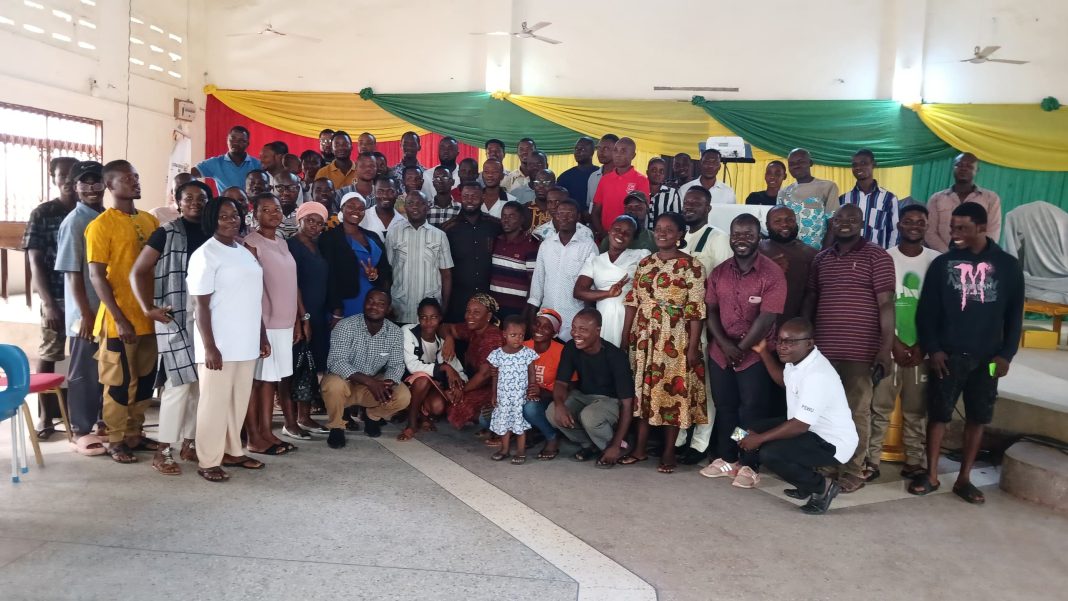By Opesika Tetteh Puplampu
Sege, July 6, GNA — The National Youth Authority (NYA), Ada West District Secretariat, in collaboration with the United Nations Development Programme (UNDP) and other youth groupings, has held a youth-led town hall meeting to promote inclusive governance and youth participation in local planning and budgeting processes.
The event was held at Sege on the theme: “Empowering the Youth for Participatory Governance and Sustainable Development.”
It brought together 98 young people from across the Ada West and Ada East Districts.
Participants engaged development actors, local authorities, and civil society organisations on strategies for integrating youth perspectives into Ghana’s local governance systems and demographic dividend agenda.

Mr Matthias Kofi Blay, Greater Accra Regional Director of the NYA, emphasised the importance of equipping young people with the knowledge and tools to actively influence decisions that affect their communities.
“The goal is to empower youth to understand the local assembly structure and how planning and budgeting processes work,” he said, adding that “At NYA, when we say ‘youth’, we mean all young people, including those with disabilities, the visually impaired, students, and graduates. No one is left behind.”
Mr Blay encouraged the youth to build their capacity and develop a deep understanding of youth issues to effectively advocate for themselves and contribute meaningfully to local development.
Mr Dennis Agbi, Ada West District Director of the NYA, noted that the platform was created to foster dialogue, accountability, and empowerment, stating that sanitation and youth involvement in violent extremism were two key challenges affecting young people in the area.
While acknowledging that sanitation remains the responsibility of designated service providers such as Zoomlion, Mr Agbi stressed that maintaining a clean environment must be a shared civic responsibility.
On the issue of violent extremism, he attributed the growing risk to youth unemployment and underemployment, stating that more livelihood opportunities were needed to steer young people away from destructive behaviours.
The meeting featured interactive sessions on education, health, employment, and youth empowerment.
Participants raised concerns about the limited youth involvement in district-level planning and called for the institutionalisation of youth representation on the District Planning and Coordinating Unit (DPCU) and other sub-committees of the Assembly.
Ms Nyame Patience, a participant from Sege, described the meeting as timely and enlightening.
“This meeting has opened our eyes to how the district budget works. We now know where to direct our concerns and how to follow up on government interventions,” she said.
Representatives from the District Assembly and partnering NGOs acknowledged the issues raised and pledged to enhance collaboration with youth groups going forward.
The programme concluded with a call for regular engagement and follow-up mechanisms to ensure that youth voices are integrated into the 2026 District Medium-Term Development Plan.
GNA
Edited by Laudia Sawer/Christian Akorlie
